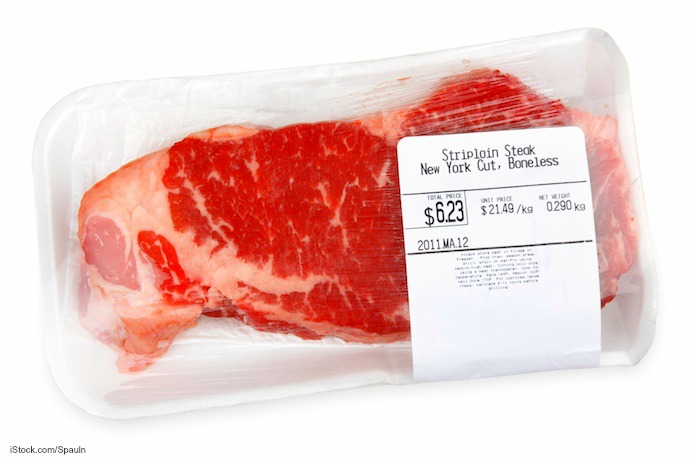Consumer Reports is helping consumers decode the labels on their meat packages. Information on the label can tell you if the meat is organic, if the animal was raised without synthetic hormones or antibiotics, if it was grass fed, and more. Here are some label terms and what they mean.

“Grass fed” means that meat must come from an animal that has never been fed grain and can graze in a pasture during the grazing season. The animal can be fed antibiotics and hormones. “Partial grass-fed” as a label term is meaningless, since all cattle eat grass or hay when they are young. Grain is given to some of these animals so they get bigger before slaughter. The American Grassfed Association and Animal Welfare Approved Grassfed labels have stricter standards than the USDA.
“Humanely raised” does not have an official definition and is not verified by any organization, including the USDA. Meat that comes from animals that are humanely raised must have an Animal Welfare Approved seal, a GAP 1-5+ label, or the Certified Humane seal. The USDA Organic seal has some welfare standards, those standards aren’t as high as those regulated by the other organizations.
“No Growth Hormones/No Added Hormones/No Hormones or Steroids Added” is truthful up to a point. The USDA does not allow hormones or steroids in poultry or pork, but cattle can be raised with hormones. This claim also does not mean the animal was not given antibiotics, or that hogs were not fed ractopamine, a growth-promoting drug that is not a hormone or an antibiotic.
“No Nitrates/No Nitrates or Nitrites Added” means that the meat may not have been cured with synthetic nitrates or nitrites, but it probably was cured using concentrated nitrates taken from celery or onions. Nitrates and nitrites have been classified by the World Health Organization as “probably carcinogenic to humans.” There are no restrictions for natural nitrates or nitrites by the USDA. If you see this designation on the label, check the ingredient list for celery juice or onion powder. These ingredients have nitrates and nitrites and carry the same risk as artificial nitrates and nitrites.
“Organic” is a meaningful term. “Natural” is not. Most people think the “natural” label means no artificial ingredients or colors are present, and no artificial growth hormones were used. That is not true. On meat labels, the USDA organic seal means the animal was given organic feed, with no antibiotics or growth hormones. Chickens, though, can be given antibiotics while they are still in the egg or on the day they hatch. “Natural” meat and poultry can be raised with antibiotics, although no artificial ingredients are added to the meat as it is processed.
“Raised Without Antibiotics/No Antibiotics Administered” label can’t be verified. The producer can submit an affidavit to the USDA testifying that no antibiotics were given to the animals, but the farms are not inspected by the government. And this label doesn’t mean that other drugs aren’t used.
The claim “no growth promoting antibiotics” is misleading. Drug companies have changed labels on antibiotics to indicate they are not for growth promotion at the request of the USDA, but these drugs can still be used to “ensure animal health” or to prevent disease in poor conditions. Giving animals sub-therapeutic doses of antibiotics is continuing as usual, giving antibiotic resistant bacteria just as much of a chance to develop.




